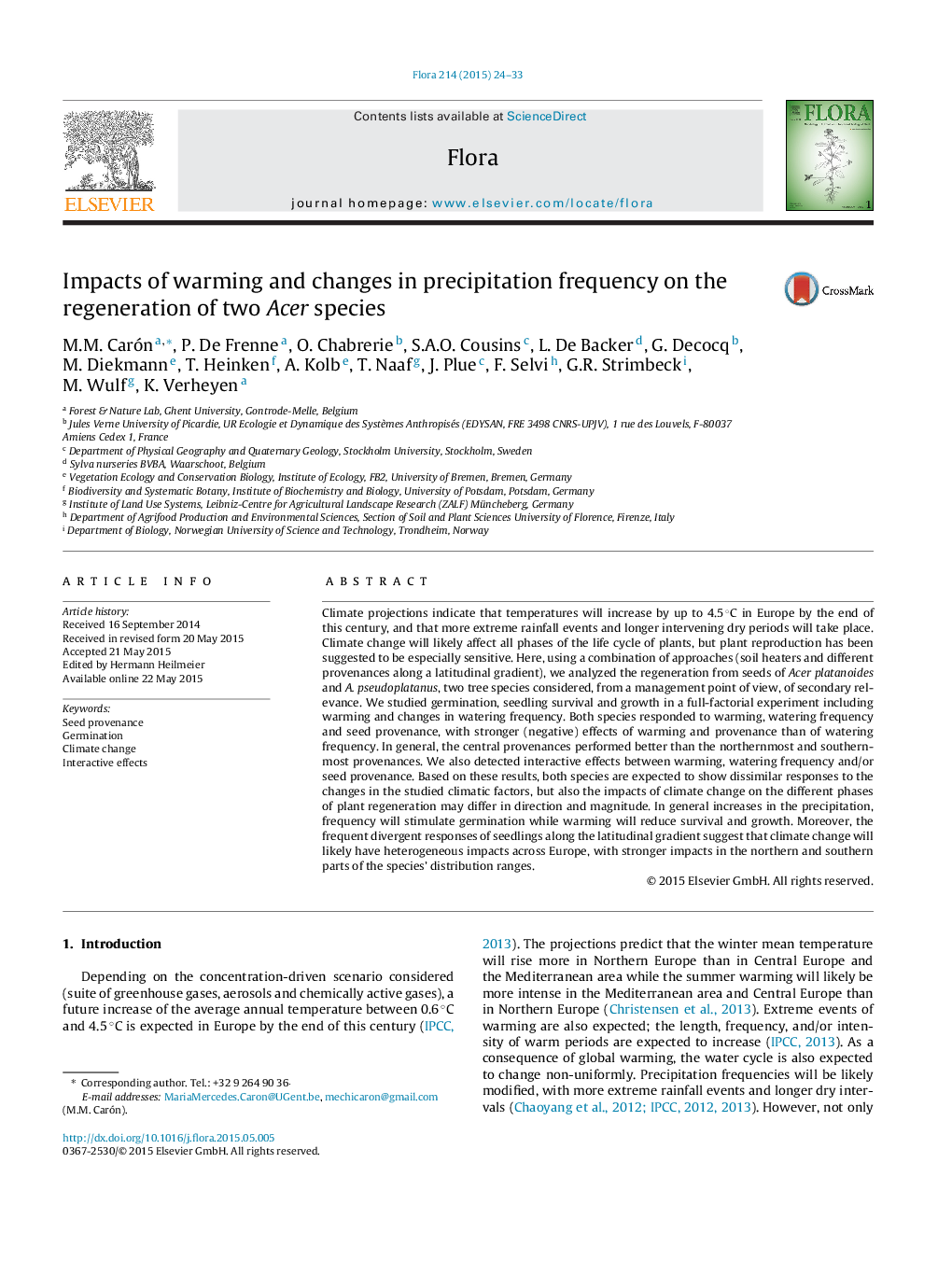| Article ID | Journal | Published Year | Pages | File Type |
|---|---|---|---|---|
| 2179369 | Flora - Morphology, Distribution, Functional Ecology of Plants | 2015 | 10 Pages |
•Climate change is predicted to strongly affect plant regeneration.•Acer platanoides and A. pseudoplatanus seedlings responded differently under simulated climate change.•Precipitation and seed provenance affected germination while warming decreased growth.•The central European provenances performed better under simulated climate change.
Climate projections indicate that temperatures will increase by up to 4.5 °C in Europe by the end of this century, and that more extreme rainfall events and longer intervening dry periods will take place. Climate change will likely affect all phases of the life cycle of plants, but plant reproduction has been suggested to be especially sensitive. Here, using a combination of approaches (soil heaters and different provenances along a latitudinal gradient), we analyzed the regeneration from seeds of Acer platanoides and A. pseudoplatanus, two tree species considered, from a management point of view, of secondary relevance. We studied germination, seedling survival and growth in a full-factorial experiment including warming and changes in watering frequency. Both species responded to warming, watering frequency and seed provenance, with stronger (negative) effects of warming and provenance than of watering frequency. In general, the central provenances performed better than the northernmost and southernmost provenances. We also detected interactive effects between warming, watering frequency and/or seed provenance. Based on these results, both species are expected to show dissimilar responses to the changes in the studied climatic factors, but also the impacts of climate change on the different phases of plant regeneration may differ in direction and magnitude. In general increases in the precipitation, frequency will stimulate germination while warming will reduce survival and growth. Moreover, the frequent divergent responses of seedlings along the latitudinal gradient suggest that climate change will likely have heterogeneous impacts across Europe, with stronger impacts in the northern and southern parts of the species’ distribution ranges.
